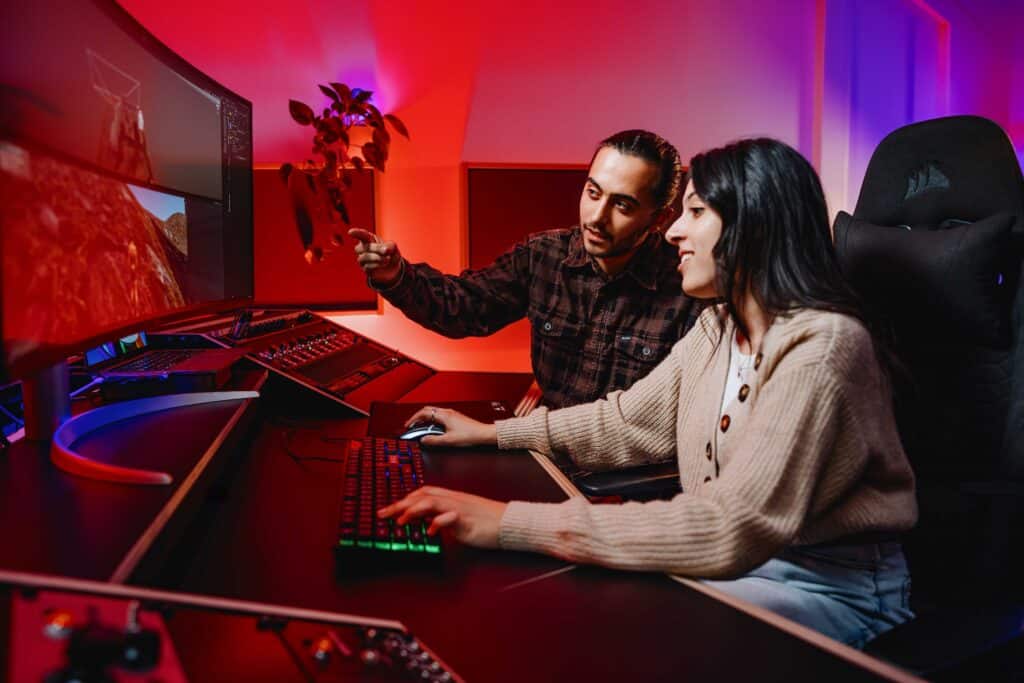BA (Hons) Games Design and Development
Our brand-new BA (Hons) Games Design and Development degree is a comprehensive course which is tailored to equip you with the essential skills and knowledge needed to thrive in the dynamic games design industry.
You will develop an understanding of how players interact with games systems and what motivates them, as well as using games engines to test your own ideas out. This will be done in the most adventurous way possible: there will be freedom to fail and learn from those mistakes that are made along the way, all in the name of experience.
A multi-disciplinary approach that combines both gaming expertise and theoretical understanding of game design and development will help you fully immerse yourself from the word go. Throughout the course, you will delve into the intricacies of the game development process, gaining insights into narrative design, mechanics, technical design, and level design pipelines.
At BIMM University, we understand that the real measure of success lies in your ability to find your place in the industry once you leave and this degree course will provide you with practical experiences and industry connections to help you make a seamless transition from the classroom to the professional world.


Our dedicated Creative Technologies faculty, who are experienced industry professionals themselves, will guide and mentor you, ensuring you are well-prepared to embark on your journey as a game design and development expert.
Prepare to unlock the doors to endless possibilities in the games design industry and get ready to build your path to success with our BA (Hons) Games Design and Development degree.
Course Specification
Mode of attendance: Full-time
Length of course: 3 years
Awarding institution: BIMM University (UK)
Campus delivery: Berlin
Language of study: English
Final award: BA (Hons) Games Design and Development
Credits: 180 ECTS credits (60 ECTS per year of study)// 360 FHEQ (UK) Level credits (120 FHEQ credits per year of study)
Minimum Requirements
All applicants must successfully complete an entrance interview with BIMM University Berlin (details provided on application).
Academic entry criteria meeting a minimum of 64 UCAS points, equivalent to:
- General Higher Education entrance certificate (Award of Zeugnis der Allgemeinen Hochschulreife/ Abitur, or a Fachgebundene Hochschulreife/ Fachhochschulreife) with an overall average grade of 3.0, including a minimum grade of 10 on the English component (Leistungsfach) on the Abiturprüfung.
- 2 A-levels at Grade C or above, or BTEC Level 3 equivalent, and normally three GCSEs at a minimum grade C/4, including English Language.
- Please reference the Entry Requirements webpage for additional international qualification equivalencies. For applicants with significant prior professional experience and aged 19-years or older, offers may be made under the BIMM University Recognition of Prior Practice Policy.
- Proof of English Language proficiency is required if English is not your first language. BIMM University Berlin requires equivalent to Level B2 CEFR (Common European Framework of Reference for Languages).
Course Fees
We’re dedicated to giving our students the best education possible – which means accessing our globally successful first-rate lecturers in premium locations at the heart of Germany’s creative scene.
Such cutting-edge facilities can be expensive, but we make sure all BIMM University Berlin courses are great value for money – representing a practical and affordable investment for your future career in the industry.
Year 1
All students take the following core modules in their first year of study.
A first Creative Industries module will introduce you to the strategies and tools to set you on the right path toward pursuing a successful career in games. Whether focused on a particular career goal or considering several future possibilities, you will broaden your knowledge of the opportunities available to you as a future creative industry professional. In a second module, you will further develop your investigative skills, exploring relevant underlying concepts and principles and interpreting these within the context of your area of study. You will explore the nature of creativity, the wider context of the game industry and practice reflective techniques.
By studying the interplay between aesthetics, functionality, and user requirements, you’ll gain insights into the practicalities of design in both digital interfaces and physical products. Crucially, for those aiming for a career in game design, understanding these principles is pivotal. A game, at its heart, is a product that blends digital intricacies with user-cantered design. The knowledge and skills acquired in this module will serve as essential tools for game designers, equipping them to craft engaging and immersive gaming experiences that resonate with diverse player bases.
This module delves into the practical application of different game engines, understanding their industry context, and appreciating their role in streamlining the game production pipeline. You will enhance your proficiency in these pivotal game development tools. Topics covered include general design principles and philosophies, scene assembly, fundamental control mechanisms, both visual and coded scripting, editor capabilities, and the intricacies of asset management and deployment to specific hardware platforms.
This module introduces you to the foundational principles and practices of game programming, inclusive of visual scripting. It aims to provide a balanced understanding of game coding alongside the application of visual blueprints, essential for modern game development.
This module will introduce students to Game Design Theory through games making. They will be introduced to formal elements, theories of play and player taxonomy alongside elements of player psychology. They will explore their own relationship with play and how designer build for emotional content in games. It will introduce the ways designers document their games.
You’ll gain a foundational understanding of the core principles and concepts central to game mechanics and their influence on game design. It’s your gateway to the world of the design of play and how game mechanics come together to offer immersive and rewarding gameplay experiences.
This module will look at creating props for games including objects held by player characters and environmental scatter. Students will understand key research and design principles understanding how to define art styles, build art bibles and use those to create effective props for games.
Year 2
All students take the following core modules in their second year of study, plus two optional modules
*Please note that the offering of optional modules in individual Film Schools, in any given academic year, will be subject to the availability of resources and sufficient student interest.
In this module you will carry out an individual investigation, utilising secondary research to investigate the lineage of your creative practice. You will directly apply ideas to your own discipline and development, selecting an area of investigation relevant to your own practice, and communicating your argument in written or via a narrated slide presentation. The concepts you explore in this module, including your positionality and identity, are themes you will encounter frequently as a creative professional.
This module offers you exposure to practical game development processes, simulating experiences you will likely encounter in professional studios. Structured around four distinct development projects, the course introduces you to a variety of briefs from different sources, including direct input from the gaming industry, competitive environments, and academic collaborations.
This module will require you to utilise your acquired knowledge to plan and create, collaboratively, a piece of work that links to your practice. Collaborating with others can help you develop new and innovative ideas and can also help you develop confidence as a creative practitioner whilst practising your communication, project management, reflection and feedback skills.
This module offers an intricate exploration into game design, prioritizing the creation of compelling player experiences. The curriculum not only covers advanced design principles but delves deeply into level design and the art of “game feel” – the tactile, emotional feedback a player gets from interactions within the game. Drawing from player psychology, motivation theory, and the PENS (Player Experience of Need Satisfaction) model, you will be equipped to craft memorable game experiences that resonate deeply with players.
This module covers the skills required to produce game environments. Students will learn to project manage, organise construction into modular elements, implement specific 3D modelling and sculpting/texture workflows, and integrate assets into a game engine. They will understand how to shape story and player experience through environmental factors and how to take skill learnt at the prop level to a more substantial piece.
This module dives into the art and craft of intertwining compelling narratives within the interactive medium of games. You’ll explore how stories are structured, told, and integrated, examining the unique challenges and opportunities that games present for storytelling. Throughout the module, you’ll unravel the intricate dynamics between player agency, branching narratives, and linear storytelling, aiming to craft experiences that resonate deeply with players and leave a lasting impact.
This module focuses on learning techniques to produce engaging and intuitive interfaces for games and innovative control methods alongside bringing those systems to life through graphic design and motion graphics.
Students will expand on scripting techniques both using code and visual forms. They’ll explore data types and more advanced techniques to facilitate tools and gameplay.
This module will introduce participants to the concept of procedural content creation which can substantially increase the speed of production. The sessions will look at the basic concepts of proceduralism and rule-based system development with students using Houdini in conjunction with Unity or Unreal to create and design assets that will allow artists and designers to generate and populate levels. Students will also experiment with AI art generation tools.
This module introduces the art direction and creation of highly-detailed 3D models using software such as ZBrush or Mudbox. The models are then rigged with a digital skeleton, allowing for animation and movement in game engines like Unity or Unreal.
This module introduces Materials and Shaders, Shaders are small programs that run on the graphics processing unit (GPU) of a computer, allowing for real-time rendering of objects with realistic lighting and shading effects. These effects can include reflections, refractions, and even dynamic weather patterns. Materials define the surface properties of objects, such as texture, colour, and reflectivity. They work in conjunction with shaders to create the final appearance of an object in a game world
This module covers the skills required to produce game environments. Students will learn to project manage, organise construction into modular elements, implement specific 3D modelling and sculpting/texture workflows, and integrate assets into a game engine. They will understand how to shape story and player experience through environmental factors and how to take skill learnt at the prop level to a more substantial piece.
Students will explore basic animation principles in relation to games design and games engines. Starting with simple sprite animations and progressing to building in-game animation state machines. Students will be tasked with understanding and building animation driven character controllers.
Sound design involves creating and implementing sound effects, such as footsteps, gunshots, and ambient noise, to provide a sense of realism and immersion in the game world. Music composition involves creating original scores or licensing existing tracks to fit the game’s mood and tone.
Game engines and middleware like FMOD and Wwise provide tools for integrating sound effects and music into the game, allowing for dynamic and responsive soundscapes that change in response to player actions and events in the game world.
Students will explore design for various hardware platforms: this might include handhelds, mobile or console. They will examine hardware requirements, restrictions and deployment processes.
Students will use the key engines technologies they have learnt to create content for VR and AR applications exploring the design and physiological challenges.
Year 3
All students take the following core modules in their third (and final) year of study, plus one optional module.
*Please note that the offering of optional modules in individual Film Schools, in any given academic year, will be subject to the availability of resources and sufficient student interest.
This module will enable you to apply the skills and knowledge that you have gained during your studies at BIMM University and produce an extended piece of work exploring your creative practice. You will generate a project idea then extend and develop this project through to completion.
This module serves as the final step in preparing you for a career in the games industry. It encourages critical self-evaluation of your personal learning journey and industry engagements thus far, drawing on evidence from your entire student experience. You will explore concepts and theories of personal and professional development to assess your readiness for work. You will have the opportunity to engage with specialised workshops, facilitated by industry experts and informed by our extensive industry connections, to provide valuable knowledge and help you develop the skills needed to launch your career. The culmination of this module is the creation of a portfolio or showreel that showcases your talent and effectively communicates your unique professional identity.
In this module you will dive deep into the nuanced art of creating intricate, immersive, and believable game universes. This advanced module emphasizes not only the design of worlds but also the lore, cultures, ecosystems, and histories that make them resonate with players. By its conclusion, you’ll possess a comprehensive toolkit for crafting dynamic and interconnected game worlds that captivate audiences and enhance gameplay.
In this module, you’ll explore the crucial initial phases of game development. Through this journey, you appreciate the importance of comprehensive planning and leverage research-driven ideation to produce compelling game ideas. As you refine your concept, you learn to pinpoint your target market and tailor your game to their preferences. You also hone your skills in pitching game concepts, choose the most suitable project management methodologies, and ensure the optimal project scope. A highlight of the course will be guiding you in crafting a vertical slice, a representation of your game’s core design and mechanics.
In this module, you will bring your game concept or game assets to life, navigating the challenges of game development while also engaging in the negotiation process to determine the assessment criteria of your project. You will deliver a project aiming for a professional level of project management and quality assurance, keeping a developer diary to record your journey.
Students will be exposed to incorporating game engine technology into film and TV workflows initially using comping techniques and moving onto using virtual volumes.
Many people in the creative technology sector go on to work in freelance roles or have ambitions to set up their own businesses. This module will look at key business examples of how that works, how you can access funding and what good management of people looks like. Participants will be expected to create a high-level business plan for a future business.
This module focuses on enhancing techniques to produce engaging and intuitive interfaces for games and innovative control methods alongside bringing those systems to life through graphic design and motion graphics including VR/AR interfaces.
Students will explore more advanced animation principles in relation to games design and games engines. Using creature and human rigs students will be challenged to create live rigs for virtual production and optical capture.
This course is also available at our partner school Screen and Film School in Brighton, UK.
Any questions?
For any questions regarding our courses or if you’d like more information on how to apply to BIMM University Berlin, please contact our Admissions Team on +49 (0)30 311 99 186 or email admissions@bimm-university.de.












